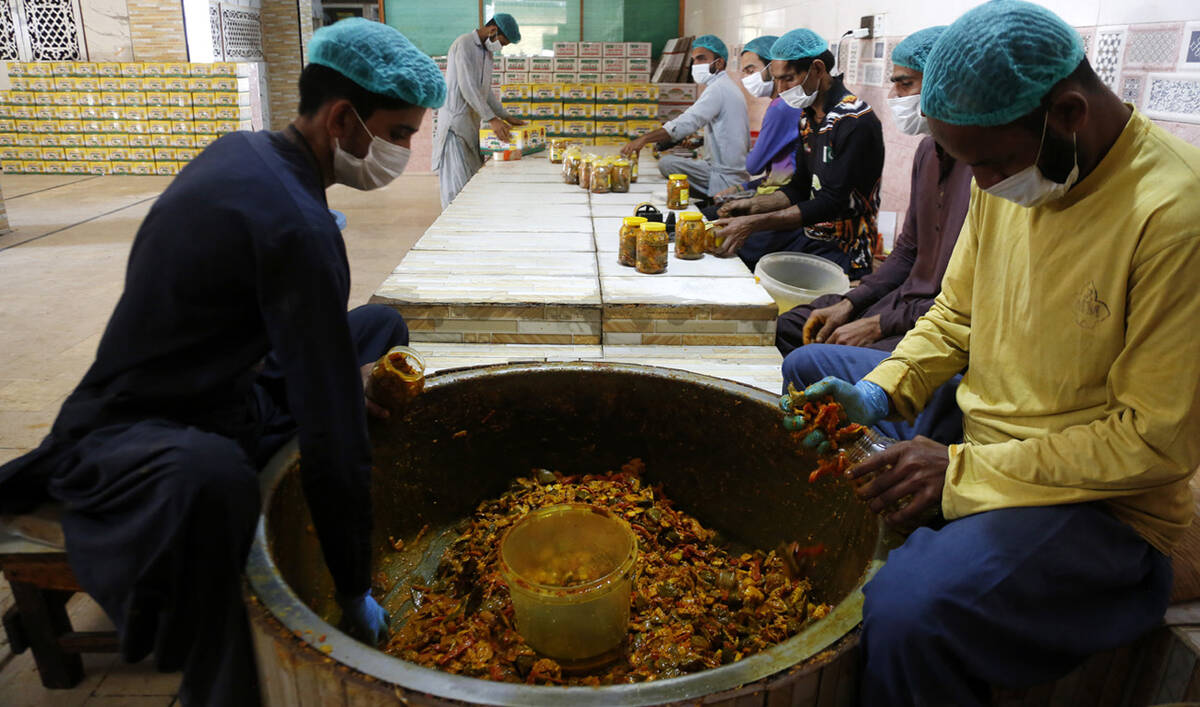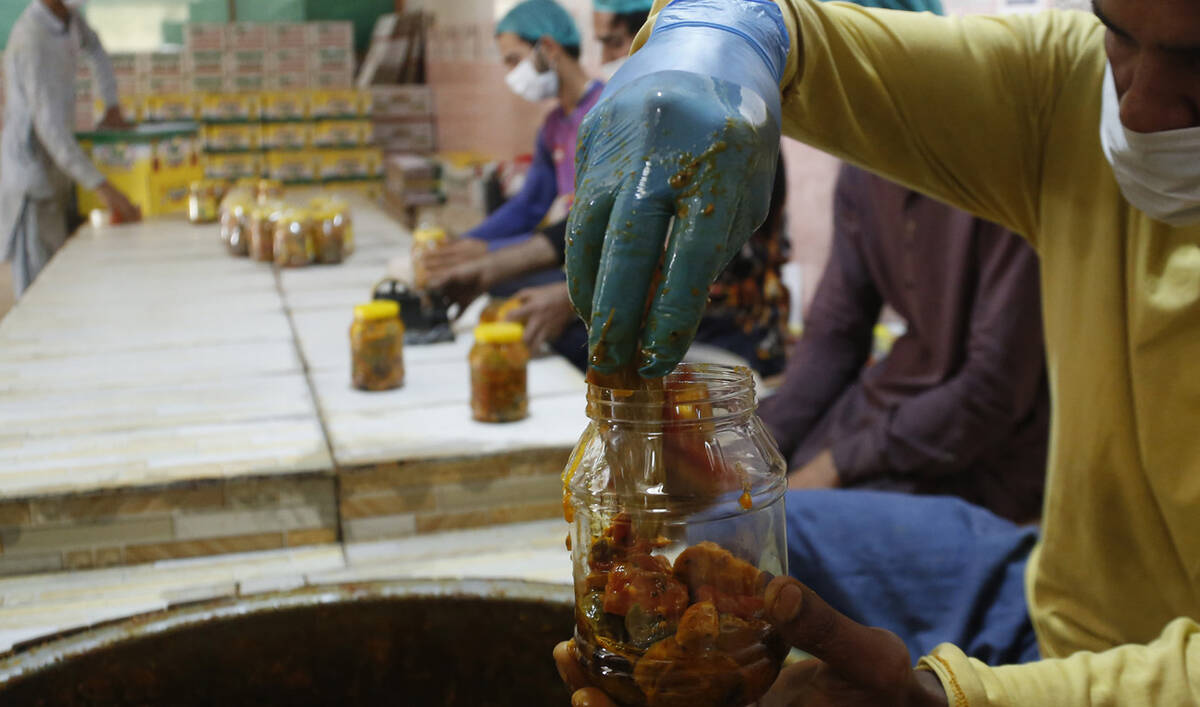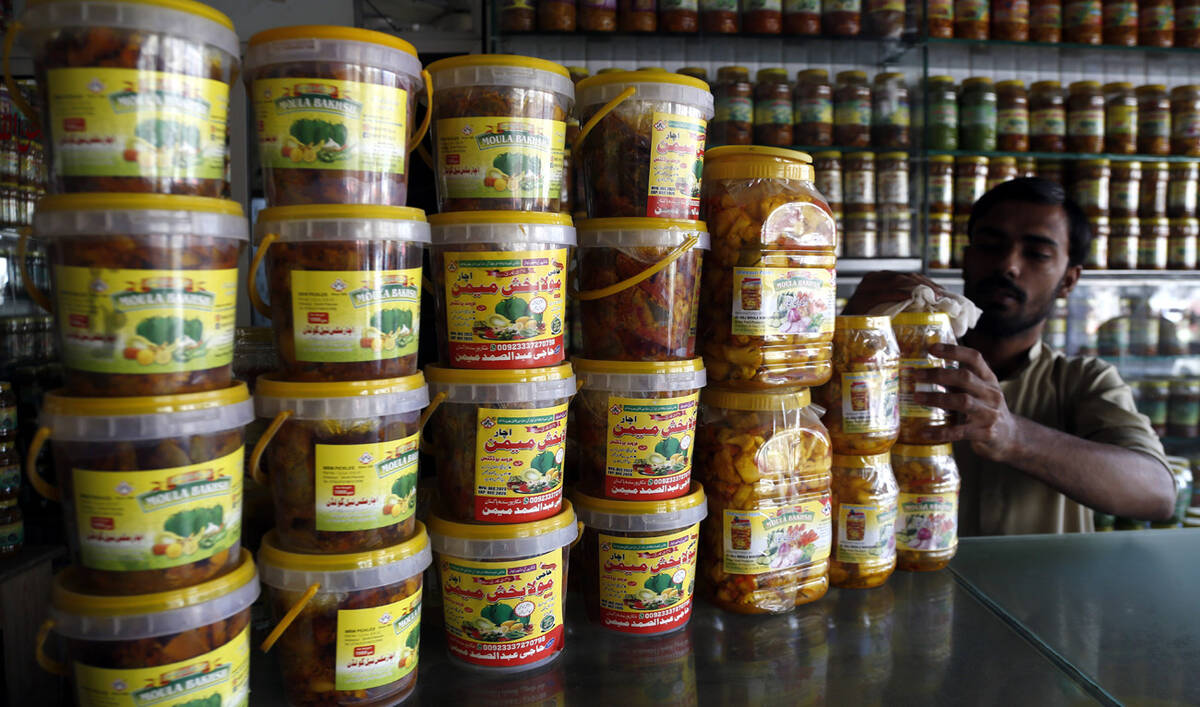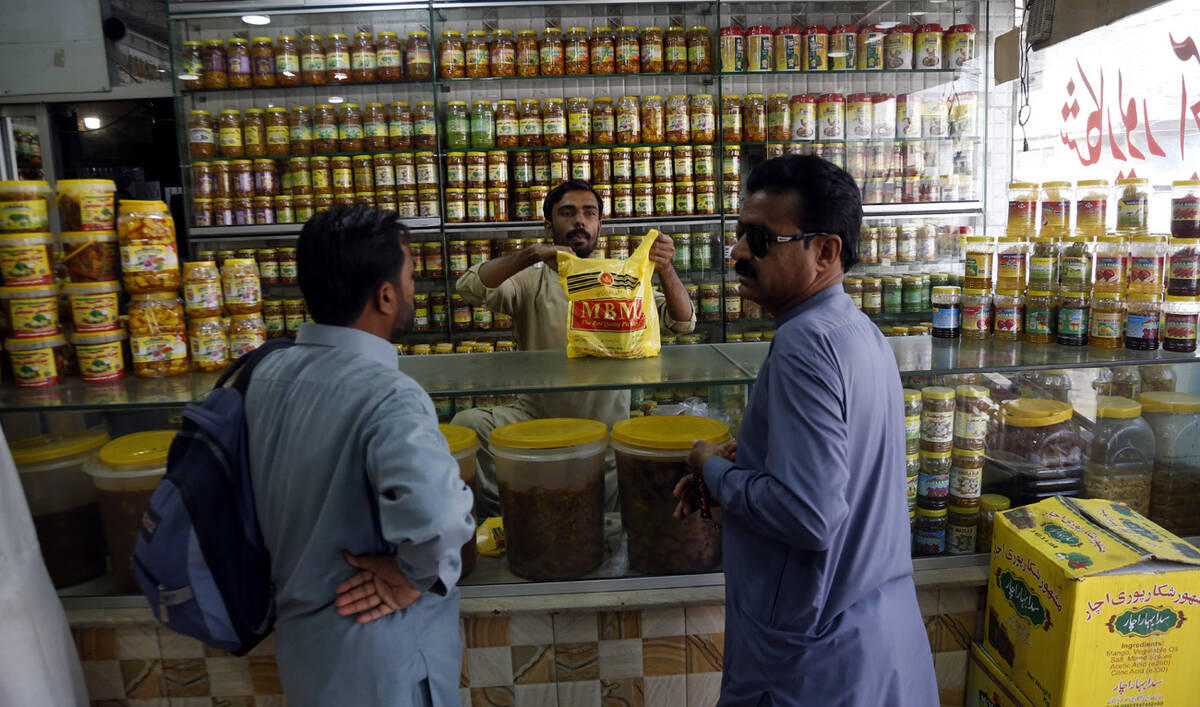KARACHI/JEDDAH: Citing a lack of ballot secrecy for voters as their main concern, independent analysts and members from the opposition parties expressed serious reservations over the i-voting system launched by the Election Commission of Pakistan (ECP) on Friday.
According to the ECP, the initiative will enable overseas Pakistani citizens to vote for 11 national and 26 provincial constituencies.
The online resource, which contains video tutorials for prospective voters in English and Urdu, promises to help users “cast their vote online from anywhere in the world using any Internet-connected device”.
The service, from September 1 to September 15, is only for citizens who are already registered voters in Pakistan. Documents such as the National Identity Cards for Overseas Pakistani and Machine Readable Passports are a must to register for the service.
Once registered, users will receive a secret code — between October 10 and October 14 — that will be unique to each one of them and enable them to participate in the elections.
“The process seems to have started on the Supreme Court’s directives issued in response to a petition launched by the Pakistan Tehreek-e-Insaf (PTI) party,” Dr. Tauseef Ahmed Khan, a Karachi-based analyst, told Arab News on Saturday.
“The PTI will certainly be the top beneficiary of the i-voting system since it is quite popular with Pakistani expats,” Khan said. “But given the ECP’s capacity and the failure of the RTS [Results Transmission System] in the July election, one cannot rule out the possibility that the i-voting system may fall short of expectations,” he added.
Faisal Sabzwari, a Muttahida Qaumi Movement-Pakistan (MQM-P) leader, concurs. “The recent failure of the RTS proves that the Election Commission of Pakistan lacks the capacity to operate election technology efficiently.”
He admitted that the ECP’s decision to set up the portal was “principally right,” though the mechanism raises important doubts in Pakistan’s context. “How will they authenticate the online registration? How will the ECP deal with any fake registration attempts? If the ECP wanted to give overseas Pakistanis the right to vote, it could have done that through our consulates in different cities across the world,” Sabzwari said.
PTI lawmaker Arsalan Taj Ghumman reasoned that the i-voting systems had been “successful globally”, adding that he sees no reason why it cannot be implemented in Pakistan. “We hope this pilot project succeeds as it will make it easier for the country to ensure the participation of overseas Pakistanis in the elections,” he said.
Abdul Jabbar Nasir, a Karachi-based analyst, noted that the exercise was still in its early stages, adding that the ECP had chosen by-polls on 37 seats “to test and implement the system with relative convenience”.
It may be recalled that the Supreme Court had convened a session to give voting rights to overseas Pakistanis on April 12, instructing the ECP to constitute a task force to undertake a technical audit of the i-voting platform.
The ensuing report warned that the i-voting system did not “provide ballot secrecy as required in Clause 94 of the Elections Act, 2017, and Article 226 of the Constitution of the Islamic Republic of Pakistan.”
“We realized that users can easily mount attacks on this system using their web browsers whereby they can cast votes for whichever national and provincial seat they choose, regardless of their constituency. These attacks can be launched with the moderate technical ability and can easily be automated to manipulate votes at a large scale,” parts of the report read.
IT experts observed that there was a “critical shortage of cybersecurity skills and expertise in Pakistan, particularly within the field of election security.” “We would, therefore, urge all stakeholders to exercise extreme caution in approaching the question of Internet voting,” the task force concluded.
Throwing caution to the wind, several overseas Pakistanis said they were happy to finally be a part of the country’s democratic process.
Maroof Butt, a resident of Lahore based in Jeddah, told Arab News that he considers it “a historic moment for overseas Pakistanis and a moment of recognition as well.” He added, “our participation and contribution in the elections will surely make our voice heard.”
Farmanullah Khan, a resident of Mardan working in Dubai, is one among many. Talking to Arab News, Khan — who could not vote in the past three elections – said he is happy to vote for his candidate in PK-53 and would certainly register online to facilitate the process.
Imran Shah, a resident of Clifton Karachi based in Australia, is all geared up. Although the by-polls in his home constituency, NA-247, have not been scheduled yet, he intends to register himself as soon as possible, especially because — if PTI’s Dr. Arif Alvi becomes the country’s next president — NA-247 constituency may soon become vacant. “I don’t want to miss the opportunity of voting, whenever there is a polling process in my constituency.”
Experts remain skeptical about Pakistan’s i-voting system
https://arab.news/rxmuy
Experts remain skeptical about Pakistan’s i-voting system

- Insist online initiative may not provide ballot secrecy
- Overseas Pakistanis happy to be given opportunity to participate in democratic process
Pakistan sends 70 tons of quake aid to Myanmar as death toll nears 3,000

- Myanmar was shaken by a devastating 7.7-magnitude earthquake, its worse in over a century
- Shehbaz Sharif assured the ruler of the Southeast Asian state of Pakistan’s support a day earlier
ISLAMABAD: Pakistan dispatched 70 tons of relief goods to Myanmar on Tuesday, the foreign office said, as the military ruler of the Southeast Asian country warned the death toll from last week’s powerful earthquake was likely to exceed 3,000.
Prime Minister Shehbaz Sharif had spoken with Myanmar’s junta chief Min Aung Hlaing a day earlier, extending condolences over the loss of lives caused by the devastating 7.7-magnitude quake that struck on Friday.
During the call, Sharif assured the Myanmar leader that Pakistan would provide all possible assistance to help those affected by the disaster.
“In keeping with its commitment to international cooperation during times of crisis, Pakistan has dispatched 70 tons of relief supplies to Myanmar for those affected by the recent earthquakes,” the foreign office said in a statement.
“Minister for Parliamentary Affairs Tariq Fazal saw off the first flight carrying 35 tons,” it added. “Earlier, Prime Minister Shehbaz Sharif spoke with his Myanmar counterpart, expressing solidarity with the people of Myanmar and assuring them of all possible assistance in the wake of the disaster.”
Aid groups in Myanmar on Tuesday described scenes of devastation and desperation, warning of a narrowing window to find survivors.
Earlier today, the official death toll had reached 2,719, with 4,521 injured and 441 still missing. Myanmar’s military ruler in a televised address, said the toll was expected to surpass 3,000.
The quake, which struck at lunchtime on Friday, was the strongest to hit the Southeast Asian country in over a century. It caused extensive damage in the cities of Mandalay and Naypyitaw, flattening ancient pagodas and modern buildings alike.
In neighboring Thailand, at least 21 people were reported dead, and search operations continued in Bangkok for survivors in the rubble of a collapsed under-construction skyscraper.
UN agencies said hospitals in Myanmar were overwhelmed, with rescue efforts hampered by infrastructure damage and ongoing conflict. Aid workers also reported a severe shortage of food, water and shelter in the country.
With input from Reuters
Pakistan sees modest rise in non-textile exports — state media

- Textile sector has dominated Pakistan’s export economy, but efforts are underway to promote diversification
- Pakistan has increased its exports of sesame, crude petroleum, cement, jewelry and automobiles this fiscal year
ISLAMABAD: Pakistan has recorded modest growth in its non-textile exports in the current fiscal year, helped by steps taken by the Special Investment Facilitation Council (SIFC) to boost trade, state media reported on Tuesday.
The textile sector dominates Pakistan’s export economy, accounting for around 60 percent of it, contributing 8.5 percent to gross domestic product and employing roughly 40 percent of the country’s industrial labor force.
While textiles continue to play a major economic role, the SIFC, a hybrid civil-military body designed to streamline investment and export procedures, has been actively promoting diversification through targeted support and policy incentives.
“In the first eight months of the current fiscal year, non-textile exports have grown by 2.3 percent, reaching $9.8 billion,” Radio Pakistan said, citing official statistics.
Among the notable gains, sesame seed exports to China surged by 179 percent, reaching $28 million, while crude petroleum exports doubled.
Cement exports rose by 26 percent, and jewelry exports climbed by 66 percent.
Radio Pakistan also highlighted the first-ever exports from the Gwadar Free Zone, including an approved annual consignment of 10,000 tons of potassium sulfate fertilizer.
In line with the government’s export-led growth strategy, Pakistan’s automotive sector has also made a new push into global markets, with a first shipment of 40 locally manufactured cars exported to Japan.
Radio Pakistan said the government has termed this a “golden opportunity” for local auto manufacturers, pledging continued policy support.
Pakistan saw most militant attacks in a decade in March, says conflict monitoring group

- PICSS reports 228 fatalities of civilians, security personnel and militants in 105 attacks
- Another 107 also lost their lives in security operations carried out by Pakistani forces
KARACHI: Militant attacks in Pakistan surpassed 100 in March for the first time in over nine years, marking it to be the deadliest month since 2015, a leading security think tank said on Tuesday, as violence spiked across the country’s two western provinces.
The Pakistan Institute for Conflict and Security Studies (PICSS) said Khyber Pakhtunkhwa and Balochistan were the hardest hit, though Punjab and Sindh provinces also experienced an uptick in militant activity.
Islamabad has repeatedly blamed Afghanistan for providing shelter to militant groups targeting civilians and security forces in cross-border attacks, an allegation denied by the authorities in Kabul.
“The number of militant attacks surpassed 100 for the first time since November 2014,” PICSS said in a statement.
The think tank reported 105 militant attacks during the month, resulting in 228 fatalities — 73 security personnel, 67 civilians and 88 militants — and 258 injuries, equally split between civilians and security forces.
Security operations conducted during the same period resulted in an additional 107 deaths and 31 injuries, bringing the overall death toll for the month to 335.
“According to the PICSS Militancy Database (PMD), March 2025 recorded the highest overall fatalities since August 2015,” the statement added.
Balochistan witnessed at least 122 fatalities, including 40 civilians and 37 security personnel, as well as three suicide bombings, two of which were carried out by factions of the separatist Baloch Liberation Army. The province also saw the March 11 hijacking of the Jaffar Express, which left 26 hostages and 33 militants dead.
PICSS said Khyber Pakhtunkhwa reported the highest number of total deaths — 206 — comprising 49 security personnel, 34 civilians and 123 militants. Of these, 82 fatalities occurred in the tribal districts, formerly part of the Federally Administered Tribal Areas (FATA), where security operations also intensified.
The think tank informed that Punjab also witnessed an increase in militant activity, with seven attacks recorded — mostly in Dera Ghazi Khan — marking the highest number of incidents in the province in a single month in a decade.
Six people were killed and 22 suspected militants arrested in Lahore, it added.
The southeastern Sindh province also reported three low-intensity attacks, including one claimed by Daesh.
PICSS also recorded six suicide attacks in March — three in Balochistan, two in mainland KP and one in the tribal districts — making it the deadliest month for such incidents in recent years.
Pakistan extends deadline for expulsion of Afghans

- The deadline has been shifted to next week due to Eid holidays in the country
- Authorities in Kabul have urged countries hosting Afghans not to force them out
ISLAMABAD: Pakistan has postponed a deadline for hundreds of thousands of Afghans to return to their country due to Eid Al-Fitr holidays marking the end of Ramadan, a government official told AFP on Tuesday.
In early March, Islamabad announced a deadline of the end of the month for Afghans holding certain documentation to leave the country, ramping up a campaign to send Afghans back to their homeland.
“The deadline has been extended until the beginning of next week due to Eid holidays,” the official said on the condition of anonymity as he was not authorized to speak to the media.
Afghans holding Afghan Citizen Cards (ACC) — issued by Pakistan authorities and held by 800,000 people, according to the United Nations — face deportation to Afghanistan after the deadline.
More than 1.3 million Afghans who hold Proof of Registration (PoR) cards from the UN refugee agency, UNHCR, are also to be moved outside the capital Islamabad and neighboring city Rawalpindi.
The UN says nearly three million Afghans live in Pakistan, many having fled there over decades of war in their country and after the return of the Taliban to power in Afghanistan.
“Many have been living in the country for years and going back means going back to nothing,” Pakistani human rights lawyer Moniza Kakar told AFP.
Ties between the neighboring countries have frayed since the Taliban takeover, with Pakistan accusing Kabul’s rulers of failing to root out militants sheltering on Afghan soil, a charge the Taliban government denies.
A delegation from Islamabad met with officials in Kabul in March, with Pakistan emphasizing the importance of security in Afghanistan for the region.
The Taliban government has repeatedly called for the “dignified” return of Afghans to their country, with Prime Minister Hassan Akhund urging countries hosting Afghans not to force out them out.
“We ask that instead of forced deportation, Afghans should be supported and provided with facilities,” he said in an Eid message the day before Pakistan’s original deadline.
Rights groups have condemned Pakistan’s campaign.
Human Rights Watch slammed “abusive tactics” used to pressure Afghans to return to their country “where they risk persecution by the Taliban and face dire economic conditions.”
Afghan girls and young women would lose rights to education if returned to Afghanistan, as per Taliban authority bans.
Amnesty International condemned the removal of Afghans in Islamabad awaiting resettlement in other countries, saying they would be “far from foreign missions who had promised visas and travel documents, and risk deportation due to the increased difficulty in coordinating their relocation with missions such as the United States.”
Following an ultimatum from Islamabad in late 2023 for undocumented Afghans to leave Pakistan, more than 800,000 Afghans returned between September 2023 and the end of 2024, according UN figures.
Spiced to perfection: How a small southern city became Pakistan’s pickle powerhouse

- Shikarpuri achar traces roots to pre-partition India when the local Hindu community perfected its intricate preparation
- From humble beginnings, Shikarpur’s achar industry has grown into network of factories, shops and home-based ventures
SHIKARPUR, Sindh: Few table spreads in Pakistan are complete without a jar of pickles, their tangy, spicy, and complex flavors adding punch to main dishes like lentils, curries and rice.
One city in Pakistan has become synonymous with the production of achar, or pickles as they are called in Urdu.
Located deep in the heart of the southern Sindh province, Shikarpur has been churning out some of the country’s most beloved achar for generations, selling to shops around the country and also exporting to the UK, US, UAE, Saudi Arabia and other countries.
Shikarpur city houses at least 12 pickle manufacturing factories, which run networks of shops. The main brands include Hajji Mola Bux Memon, Hajji Sikander Memon, Tahir Shabir Shaikh, Nisar Ahmed Memon, Shah Nawaz Soomro, Soomra, and Nawab Memon. Other small home-based manufacturers also operate in the city, producing some of the best pickles made in Pakistan.
Abdul Saboor, the fourth-generation owner of Hajji Mola Bux Memon Achar, a leading brand from the city, said his great-grandfather established the business in 1965.
“When you hear the name Shikarpur, your taste buds automatically come alive,” he told Arab News as he supervised the packaging of products at his factory.

“The real joy is when you think of achar, and you say, ‘If it’s achar, it must be Hajji Mola Bux’.”
Saboor said the roots of Shikarpuri achar could be traced back to pre-partition India, a time when the local Hindu community first mastered the intricate preparation of the popular delicacy:
“When Hindus migrated [to India after Pakistan was born in 1947], our ancestors took inspiration from them and started the business.”

Barkatullah Asif Soomro, the owner of the home-based Memsa Achar company, said his business was started by his maternal grandmother.
“Our grandmother ran the business at home about 50 to 60 years ago,” he told Arab News. “As the demand grew, we naturally moved to a shop, but the achar spices are the same as those used at home.”
“ANCESTORS’ FORMULA”
Achar recipes vary across regions and families, but the basic process involves fermenting vegetables, fruits, or other ingredients in a mixture of spices, salt, oil, vinegar and lemon juice.
Today, Shikarpur’s achar, alongside its Hyderabadi counterpart, enjoys immense popularity both domestically and internationally. The most favorite Shikarpuri blend is a mixed pickle with carrots, turnips, onions, cauliflower, chickpeas, garlic, green chilies, lime and mango, creating a spicy, tangy and aromatic product that has delighted generations. Other favorites are pickles made of mango, green chilies and chickpeas, as well as pickled chicken, beef and mutton.
Maqsood Ahmed Meerani, a salesman with 30 years of experience, highlighted the popular ‘Mix Oil Golden’ variety.

“It has good quality and is made in mustard oil,” he said. “It includes lemon, chili, mango, carrot, falsa, garlic, ginger and many other ingredients, and it has a very distinct taste.”
Pickles serve as appetizers and are believed to help in the digestion of foods by aiding the flow of gastric juices. Experts say fermented pickles have beneficial bacteria that help control harmful intestinal microbes.
But the specialty of Shikarpuri achar, according to Saboor, was the meticulously sourced, organic spice mix made by grounding down fresh herbs as per age-old recipes.
“We buy all our herbs and spices ourselves and grind them with machines, right in front of our eyes,” he said. “All the spices we use are from our ancestors’ formulas, entirely organic.”

Over time, the Hajji Mola Bux brand has refined its techniques, introducing new ingredients, but the core focus on quality and organic spices remains unchanged.
“When the lid of the achar jar opens, and the aroma hits, it should be delightful,” Saboor said. “If it smells good, you can be sure of its quality.”
The business previously sold to Saudi Arabia and the United Kingdom but had to halt exports during the COVID-19 pandemic.
“After Eid, our export business will resume,” Saboor said, referring to the Eid Al-Fitr holiday which falls from Mar. 31 to Apr. 2 this year.
Junaid Ahmed, a resident of Shikarpur, said the city’s achar was so famous friends and relatives residing elsewhere often requested it when they heard someone was traveling from Shikarpur.
“Nothing else, but achar is a must to bring as a gift,” he said as he bought jats of pickles for his family from a local shop.
“It’s something we also send as gifts to our friends or relatives. Whether it’s Karachi or Lahore, no matter where in Pakistan, we send achar as a gift.”
















